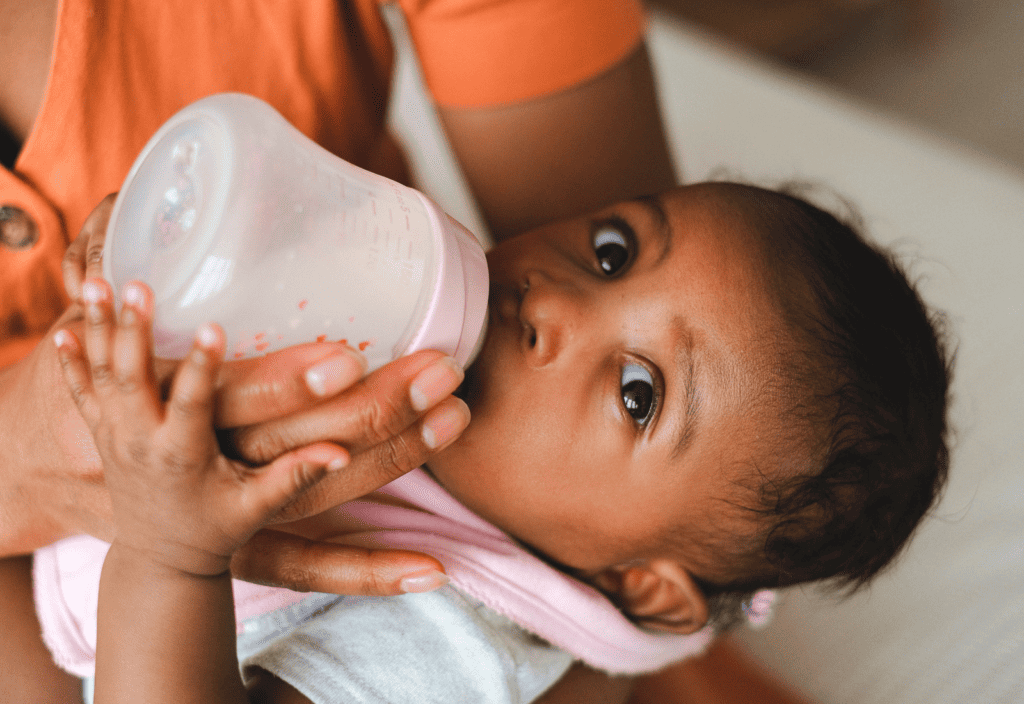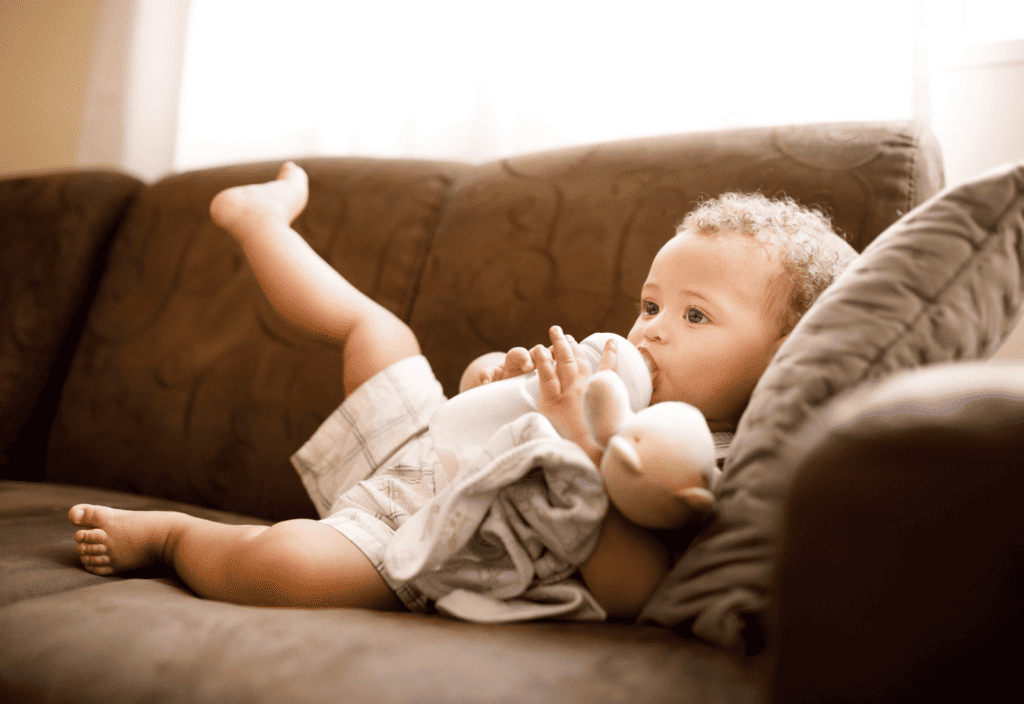Having a baby brings about millions of questions you never thought you’d ask like “Are glass baby bottles safer for babies? The short answer is “yes,” but let’s dive into the details of why this is so and which brands to trust.

Some of the first questions we ask once our babies arrive is what they should eat and drink and what they should eat and drink out of. I don’t know about you, but I didn’t give much thought about what went into my body until I was expecting my fist child.
Let’s just say, a lot has changed since then! I am now hyperaware of what goes in, on and near my body. Sometimes I miss the days of not knowing about the toxins lurking at every turn in our modern world.
Thankfully, there’s a lot we can do to reduce our toxin exposure and build up our bodies, so that they are resilient to most of the toxins that we face. Now, let’s get back to the topic of baby bottles.
Plastic Baby Bottles
Plastic baby bottles are light-weight and convenient, but they are the least healthy option. They can leach toxins into the liquids they come in contact with, which in this case is the baby’s milk. Let’s look at the toxins that can potentially leach into plastic.
Bisphenols (BPA and BPS)
BPA is one of the first plastic toxins that I remember learning about. BPA and BPS are two types of bisphenols. Bisphenols are used to harden plastic. BPS has been around even over a hundred years and BPA has been around over 50 years. BPA is often found in plastics and is linked to a whole host of health concerns.
Ironically, BPS may not be any safer than BPA. You can read the details in this journal article published in Endocrinology if you want to learn more.
According to the Mayo Clinic, “Exposure to BPA is a concern because of the possible health effects on the brain and prostate gland of fetuses, infants and children. It can also affect children’s behavior. Additional research suggests a possible link between BPA and increased blood pressure, type 2 diabetes and cardiovascular disease.”
BPS began to be used as an alternative to BPA about a decade ago when concerns about BPA grew stronger. So, that BPA free item, may have BPS in it, which is likely not any safer. The EU (European Union) has worked hard to ban and restrict the use of Bisphenols by banning it in food containers and some items related to childcare for many years now.
The U.S. does not have any restrictions on the use of BPA and BPS, so it’s up to us, the consumer, to look out for and avoid these toxic ingredients.
If you choose to use plastic baby bottles from time to time, there are a few things you can do to limit leaching like handwashing rather than placing in the dishwasher and never microwaving or heating the bottles in hot water.
The two main factors for leaching are heat and the surface being damaged, which often happens from normal wear and tear over time.
Glass Baby Bottles
Glass is one of the safest materials available to us, but not all glass is created equally. Some glass contains naturally occurring heavy metals like lead or cadmium.
It is often a surprise to people that glass can contain lead and cadmium. While many people are aware that lead is routinely found in dishes, not as many are suspicious of clear glass items.
You may wonder why glass would contain heavy metals in the first place. These heavy metals are not intentionally added to glass except in the case of decorative leaded glass like you see in crystal vases and similar.
Lead and other heavy metals are naturally occurring and sometimes finds their way into glass via raw materials. Glass is made by combining sand, soda ash and limestone according to the Glass Alliance of Europe.

This post contains affiliate links. At no cost to you, I may earn a small commission on qualifying purchases. Thank you! Your support makes this blog possible.
To ensure heavy metals don’t end up in glassware, the raw materials must be tested prior to manufacturing. Testing costs money, which is a good time to mention that cheaper is not always better.
You want to find glass bottles that have been tested for contaminants. Many reputable brands do this! In addition, glass bottles sometimes have lead paint on the outside of the bottles. You want to avoid glass bottles with colored paint if possible unless the brand ensures the paint is lead free.
Are Glass Baby Bottles Safer for Babies?
Yes, glass baby bottles are the safest option for baby bottles in my opinion. If you confirm the glass does not contain lead or cadmium, you can rest easy that nothing is leaching into your baby’s milk. Stainless steel is another option, but, like glass, you will want to confirm it is lead and cadmium free.
Glass Baby Bottle Options
Life Factory

Life factory glass bottles are Bisphenol-A (BPA), phthalate and polyvinyl chloride (PVC) free. The nipple is made of silicone, and they come with a silicone sleeve to prevent them from breaking if they are dropped.
Dr. Brown’s

Dr. Brown’s glass wide-neck bottle is lead and BPA free. They are recyclable and dishwasher safe. Many people especially love Dr. Brown’s anti-colic design.
Phillips Avent

This Natural Philips Avent baby bottle is made of premium quality borosilicate glass as well as being lead and BPA free. It is heat and thermal shock resistant, so it can be safely stored in the fridge or warmed and is easy to wash and sterilize.
I used the older version of these with my last little one, and I have to say they were great. I am quite clumsy and definitely dropped them on occasion but never broke one. They were thick and sturdy … similar to a mason jar.
Stainless Steel Baby Bottles
Stainless steel baby bottles are another good choice. Some people worry about glass bottles breaking and opt for stainless steel, and I suspect some daycares won’t allow glass. Stainless steel can leach heavy metals, so you want to ensure they are contaminant free.
The Pura Kiki Infant Bottle is MadeSafe Certified. The bottle is made of food grade stainless steel bottle (18/8), medical grade silicone components with zero plastic.

So, back to the question, “are glass bottles safer for babies?”. Yes, and stainless steel is another good option especially if your baby is older and has a habit of throwing the bottle.
If you are into learning about all things non-toxic for your baby, check out my related post on non-toxic balls for baby! As always, thanks for stopping by!